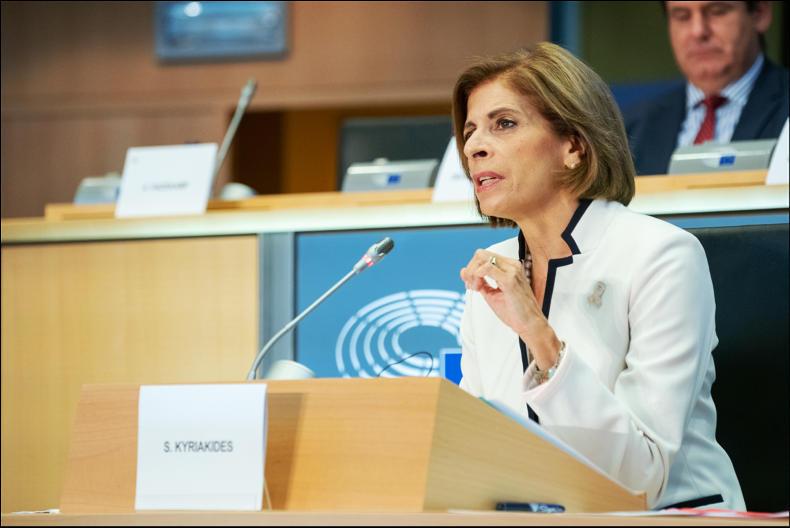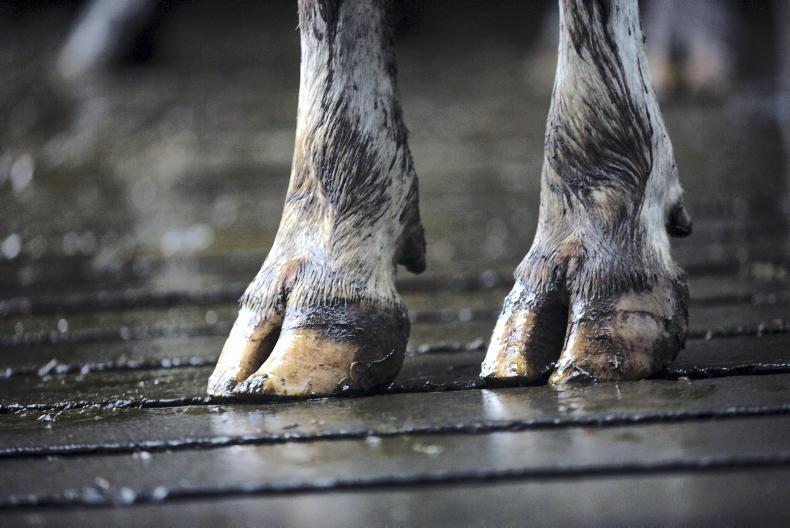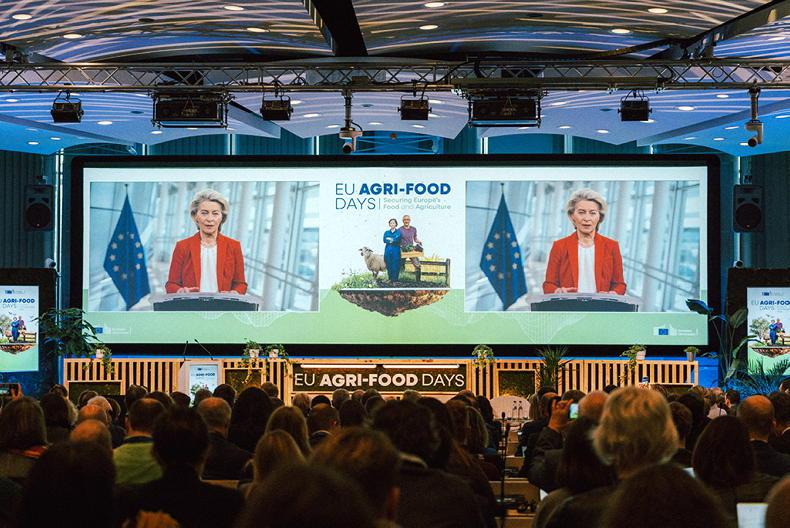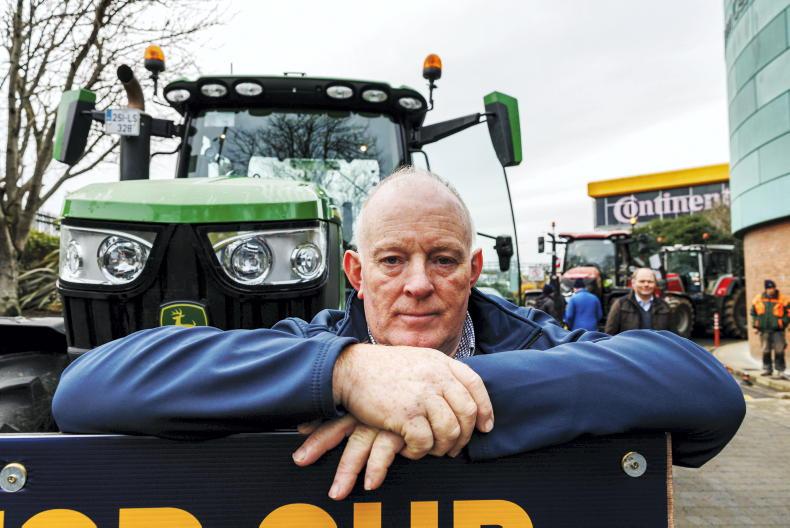The EU is planning to introduce new rules that will require all food products sold in Europe containing meat or dairy ingredients to carry country-of-origin labelling for those ingredients, the Irish Farmers Journal can reveal.
The Irish Farmers Journal has seen a draft plan of the European Commission’s new “Farm to Fork strategy for sustainable food systems”, which sets out a whole range of proposed changes to European food and farming policy over the coming decade, including country-of-origin labels on food, labels for the climate footprint of food and even guidelines on diets.
On top of this, the European Commission is also proposing some major changes around the usage of pesticides and fertilisers on farms, as well as an increased focus on animal welfare across the continent.
The proposed Farm to Fork strategy is just one part of the European Green Deal.
The next CAP is envisioned as a key tool to deliver some of the proposals in the draft Farm to Fork plan. Despite this, the strategy is spearheaded by European Commissioner for Health Stella Kyriakidou and not DG Agri or the European Commissioner for Agriculture Janusz Wojciechowski.
From an Irish perspective, there are positives and negatives contained within this draft Farm to Fork plan. In particular, country-of-origin labelling on food is sure to cause headaches for Irish food exporters, while farmers will rightfully be suspicious of what the term “sustainable dietary guidelines” could mean, especially given the EAT Lancet debacle.
Labelling
According to the draft Farm to Fork plan, the European Commission is proposing that all food products containing meat or dairy ingredients would require a country-of-origin label to indicate where those ingredients originated from.
This would mean everything from frozen pizzas and sandwiches to infant formula and baked goods sold in Europe would need to include country-of-origin labels for all meat and dairy ingredients used.
This is a particularly big issue for dairy ingredients as butter, cheese, fat-filled milk powder and skimmed powder are used in a wide variety of applications across the food industry.
For Ireland’s food industry, this would mean any food products sold across Europe containing Irish meat or dairy ingredients would need to carry a label on the packaging indicating that Ireland is the country of origin for those ingredients.
Given Ireland’s focus as a food exporter, there are concerns in the Irish food industry that this new country-of-origin labelling could create a wave of ‘food nationalism’ in Europe and goes against the ethos of the single market.
On top of this, country-of-origin labelling could have major implications post-Brexit for Irish dairy co-ops along the border that are processing milk from both jurisdictions.
Climate footprint
Another of the proposals under the Farm to Fork draft plan is to develop an EU-wide label that reflects the environmental and climate footprint of food products. While some may baulk at the idea of such a labelling system, this could be a positive for Ireland.
If we believe our own credentials that Ireland is the most carbon-efficient dairy producer in Europe and the fifth most carbon-efficient for beef, then labelling the climate footprint of food can be a competitive advantage for Ireland.
Sustainable diets
The draft Farm to Fork plan seen by the Irish Farmers Journal also shows that the EU intends to develop sustainable dietary guidelines for European consumers with consideration given to both the environmental impact and nutritional quality of food.
Again, this is an area that is likely to cause significant friction with different member states and environmental groups pushing for a sustainable diet that meets their needs or agenda.
Farmers and the traditional food industry will be extremely wary of this proposal to outline in policy what a sustainable diet looks like, especially given the furore caused by the now widely discredited EAT Lancet report on diets.
However, this proposal to develop sustainable dietary guidelines presents opportunities for Ireland.
Again, we can show that Ireland is a carbon-efficient producer of meat and dairy thanks to our grass-based system. And we can also show the health credentials of meat and dairy.
Combining these attributes should help Irish meat and dairy score very highly on the EU’s proposed sustainable dietary guidelines. Therefore, it will be crucial that the food industry, through Bord Bia, Dairy Industry Ireland (DII) and Meat Industry Ireland (MII), make the appropriate representations to the European Commission over the coming year on this issue.
Fertilisers/sprays
Under the Farm to Fork plan, the sustainable use of pesticides directive, which controls the use of plant protection products (PPPs), is to be revised to reduce the use of chemical pesticides and stimulate the take-up of non-chemical alternatives and low-risk pesticides.
This means the EU plans to continue its direction of travel regarding agrochemicals with regulations set to tighten further and more products are likely to face bans in the years ahead.
The Commission also wants farmers to lessen their dependence on fertilisers. The draft plan states that a new strategy will be implemented to optimise nutrient use on farms, enhance efficiency and reduce losses along the food chain. If necessary, the European Commission says it will introduce new legislation to achieve these reductions in fertiliser dependency.
Antibiotics
The draft plan sets out a number of actions to reduce the use of antimicrobials in farming. These include establishing a list of drugs for human use only, gathering data on the sale and use of antibiotics, setting requirements for animals or products of animal origin exported from third countries, as well as setting limits for antibiotic residues in animal feed.
This final point on antibiotic residues in animal feed could have implications for Ireland given the volume of distiller’s grains we import from the US every year.
Animal welfare
Stricter animal welfare standards will also be developed under the European Commission proposals. The basic rules of CAP and rural development schemes are two areas where activity on animal welfare could be scaled up. The plan also wants to develop welfare indicators. Existing animal welfare legislation will be subject to an evaluation and it may be tightened.
Animal feed
As the EU is heavily dependent on imported protein sources, the Farm to Fork plan wants to develop production and markets for EU-grown proteins, including plants, algae and insects. Feed labelling laws will also be revised to integrate “green claims”.
The draft plan also sets out how farmers will be supported in making the transition. These include strengthening the system of geographical indications, developing an “EU carbon farming manual” to facilitate labelling claims and result-based payments and bolstering farm advisory services.










SHARING OPTIONS